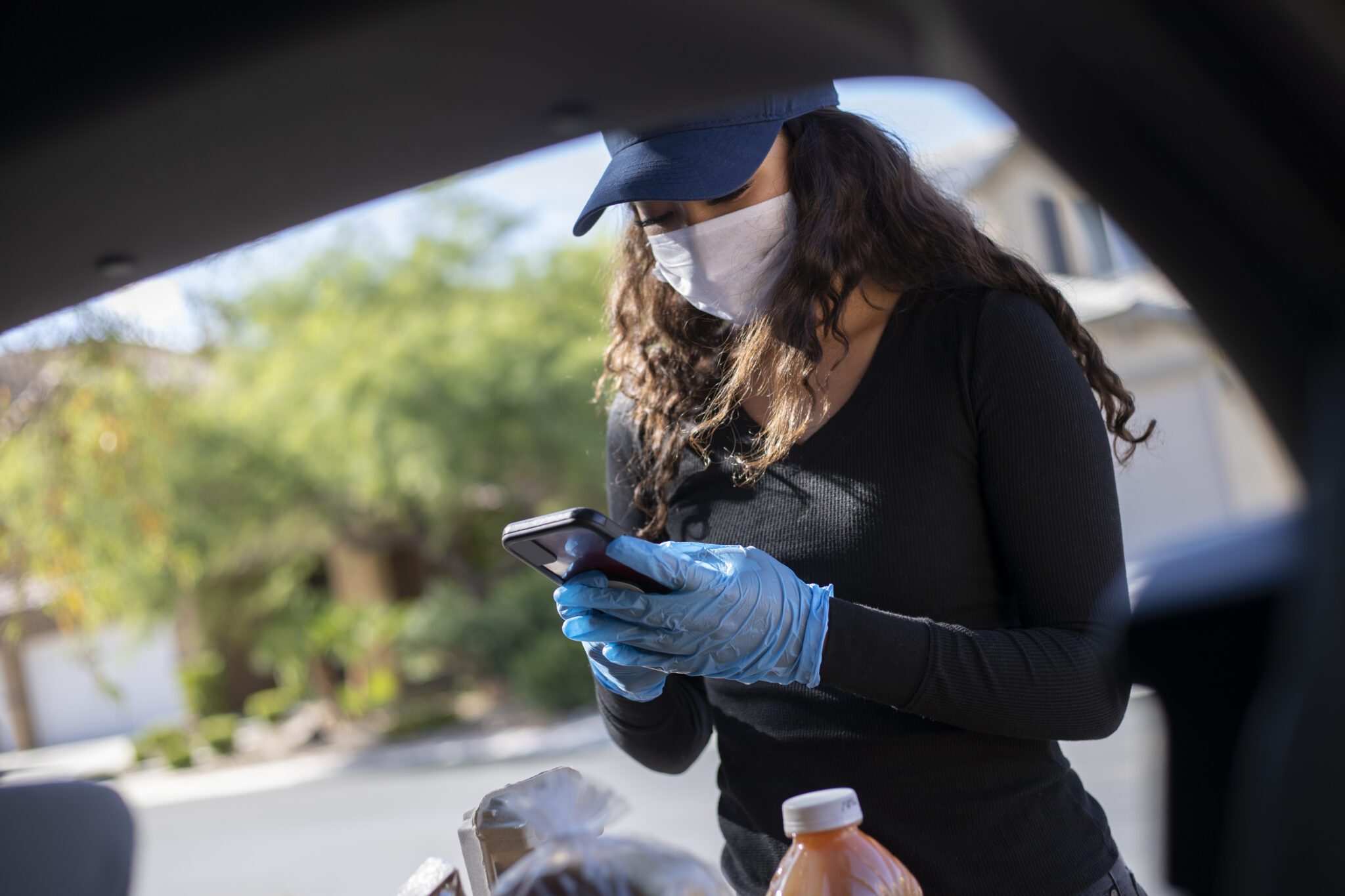From the Field
The Racial Economics of Proposition 22
Our interviews of grocery gig workers reveal a bleak labor landscape, made more precarious by the COVID-19 pandemic.

How is the grocery industry changing due to the COVID-19 pandemic, and how will it affect workers? The Berkeley Food Institute, in collaboration with UFCW Local 5, spent the summer interviewing grocery gig workers and industry experts, revealing a bleak landscape of grocery gig work, made more precarious by the COVID-19 pandemic and resulting economic disruptions.
These workers do not live the carefree life of choosy freelancers, but the crushing anxiety of day laborers in a digital marketplace. Policies of companies like Instacart and Amazon Prime rule workers’ time by an algorithm, with little protection from a deadly pandemic and zero support if workers contract the virus or must miss work to care for an ill family member. While the federal stimulus package in April gave a one-time subsidy to the gig industry by providing emergency relief to gig workers, workers were left in the lurch in most states if they wanted to take reasonable precautions against COVID-19. A patchwork of CDC referrals and bare-minimum information left workers on their own to research safety protocols and provide their own equipment. A business that refuses to invest in workers, takes no responsibility for their safety, and still struggles to make a profit is flawed. If you had an algorithm as your employer, would you not want some guaranteed protections?
All around me, I see Black and Brown people working for Postmates, Uber Eats, and Doordash. I was twice mistaken for an Instacart worker while grocery shopping, bundled up in my pandemic protection uniform of a hoodie, ponytail, and sneakers. People seem to agree that in-person grocery shopping is dangerous work that should be relegated to people of color.
The supporters of Proposition 22 are determined to have us think that people don’t want to be “burdened” by benefits, paid sick leave, and unemployment insurance. Their tactics to accomplish that include: spending millions of dollars to get Proposition 22 on the November 2020 ballot, spending even more money to flood the airways with their sympathetic single dad ads, and using coercive marketing tactics on their own drivers.
As my mailbox overflowed with Proposition 22 flyers, proudly declaring the support of Black and Latinx-sounding organizations for this proposition, I started to wonder: do these companies think that Black and Brown people don’t deserve paid days off? Or healthcare? Or any income if they are sick and trying to avoid infecting others? One of its endorsers, the California NAACP, has received numerous pay-to-play endorsement donations and, despite lack of transparency around their endorsement process, voters are expected to feel reassured that people of color indeed “want this.” Pay-to-play advocacy should be extinguished from our political process as it confuses voters and appoints self-appointed “community leaders” that diminish authentic community organizing.
Do these companies think that Black and Brown people don’t deserve paid days off? Or healthcare? Or any income if they are sick and trying to avoid infecting others?
I looked more into the “safety standards” of some of these gig grocery delivery companies. Before the pandemic, they were atrocious. But in the midst of a respiratory pandemic, do you really want to eat prepared food or cold groceries that have been picked up and delivered with this level of food safety “guidance” for couriers? The reality is this: exploited workers without health or safety protections are at greater risk at harm from COVID. When people handle sensitive food without proper training, they potentially transfer harm to you. It even affects people like me who are able to shop in person: careening past gig shoppers who are underpaid and fighting with a finicky app where missteps mean their work will be unpaid is an awful experience for everyone involved.
14 days of time off is not enough for someone fighting — and potentially spreading — COVID-19. I want the person delivering food for my family’s table to be treated well, with a reliable salary and the ability to take a breath. I want them to be able to take the time to ensure utmost sanitation and even enjoy pride in their work and save for retirement. Food is essential and precious, and so are the people delivering it.
If you are a salaried employee yourself, please consider people working full-time without basic protections. If you are working as a “contractor,” please consider your minimum annual salary to be able to pay for health insurance, retirement, and time to not work if your health or something else takes a turn for the worse. I bet that the average grocery gig worker makes less than that. Whether you are a grocery gig worker or not, please vote.